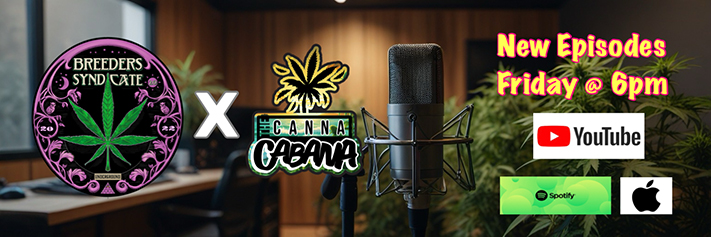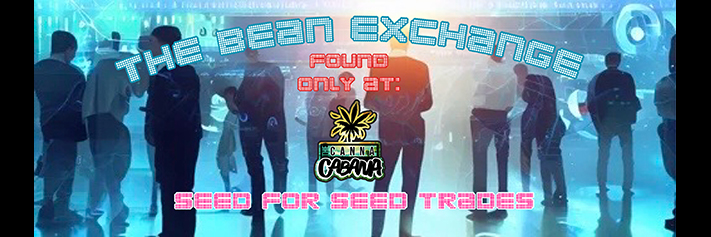alabaster
Original MichiGangsta
I receive a quarterly newsletter from Johns Hopkins Center for Psychedelic, & Consciousness Research (CPCR), and their Winter 2022 newsletter was nothing short of amazing. The best part is what it does for depression.
Just like I've been advocating for quite some time now. It's the megadose (20-30mg of psilocybin, which is about 5 gams of cracker dried shrooms) that will be the most beneficial to folks with depression, according to CPCR findings.
Another study suggests that long term microdosing may cause brain damage.
I've tried microdosing, and I believe that anything I got out of it was from wishful thinking, and the power of suggestion. I just can't fool myself. There were no lasting positive effects for me.
You're not going to believe this, but the federal government has contributed funding to CPCR recently. This is the first time in over 50 years that they've contributed funding for psychedelic research. I believe it's because depression is one of the major causes of disability in the US, and they're considering their bottom line here.
This is from my CPCR Winter 2022 newsletter.
Strides in Psychedelic Science
We are thrilled to announce the long-term results of our study examining the safety and efficacy of psilocybin-assisted therapy for major depressive disorder. The study was published in the Journal of Psychopharmacology and showed that the rapid and substantial antidepressant effects of psilocybin-assisted therapy were durable for at least one year in some participants. This study extends findings from our initial results published in JAMA Psychiatry. At initial enrollment, participants’ average depression score (measured by the GRID-HAMD) was 22.8 points and dropped substantially one week later to 8.7 points. Reductions in depression were sustained at one month (8.9), three months (9.3), six months (7.0), and twelve months (7.7). At 12 months, 75% of participants showed a clinical response (at least 50% reduction in depression) and 58% were in remission (i.e., no longer met criteria for depression). This study is the first to document antidepressant effects lasting up to 12 months after psilocybin-assisted therapy in people with major depressive disorder.
JAMA Psychiatry recently announced that our original study showing the effects of psilocybin on participants with Major Depressive Disorder was the most discussed article of 2021. During a time where mental health is of the utmost concern, the results from this study showed a potential pathway towards treatment for those suffering from depression. The results of the study were covered by over 200 media outlets, including The Washington Post, Scientific American, NPR, Forbes, and many more.
Dr. Frederick Barrett collaborated with the Johns Hopkins International Arts & Mind Lab on a scoping review of the effects of setting on psychedelic experiences. The paper reviews forty-three studies in which set and setting have been explicitly studied. Set and setting have repeatedly been reported as having a significant impact on the psychedelic experience, yet there is little consensus on what this means. The paper signifies that additional studies measuring the specific role that setting plays in a psychedelic experience, and further research on setting may provide better models for both the psychedelic-related and the broader variety of mental health interventions.
Other new developments at the CPCR include the hiring of our first Communications Coordinator, Bobby Gross, and the launching of a new survey study examining healthcare professionals knowledge and attitudes towards the use of psychedelics in the medical setting. If you or someone you know is a healthcare professional, we would love to hear from you!
For more information https://hopkinspsychedelic.org/index/#research
Just like I've been advocating for quite some time now. It's the megadose (20-30mg of psilocybin, which is about 5 gams of cracker dried shrooms) that will be the most beneficial to folks with depression, according to CPCR findings.
Another study suggests that long term microdosing may cause brain damage.
I've tried microdosing, and I believe that anything I got out of it was from wishful thinking, and the power of suggestion. I just can't fool myself. There were no lasting positive effects for me.
You're not going to believe this, but the federal government has contributed funding to CPCR recently. This is the first time in over 50 years that they've contributed funding for psychedelic research. I believe it's because depression is one of the major causes of disability in the US, and they're considering their bottom line here.
This is from my CPCR Winter 2022 newsletter.
Strides in Psychedelic Science
We are thrilled to announce the long-term results of our study examining the safety and efficacy of psilocybin-assisted therapy for major depressive disorder. The study was published in the Journal of Psychopharmacology and showed that the rapid and substantial antidepressant effects of psilocybin-assisted therapy were durable for at least one year in some participants. This study extends findings from our initial results published in JAMA Psychiatry. At initial enrollment, participants’ average depression score (measured by the GRID-HAMD) was 22.8 points and dropped substantially one week later to 8.7 points. Reductions in depression were sustained at one month (8.9), three months (9.3), six months (7.0), and twelve months (7.7). At 12 months, 75% of participants showed a clinical response (at least 50% reduction in depression) and 58% were in remission (i.e., no longer met criteria for depression). This study is the first to document antidepressant effects lasting up to 12 months after psilocybin-assisted therapy in people with major depressive disorder.
JAMA Psychiatry recently announced that our original study showing the effects of psilocybin on participants with Major Depressive Disorder was the most discussed article of 2021. During a time where mental health is of the utmost concern, the results from this study showed a potential pathway towards treatment for those suffering from depression. The results of the study were covered by over 200 media outlets, including The Washington Post, Scientific American, NPR, Forbes, and many more.
Dr. Frederick Barrett collaborated with the Johns Hopkins International Arts & Mind Lab on a scoping review of the effects of setting on psychedelic experiences. The paper reviews forty-three studies in which set and setting have been explicitly studied. Set and setting have repeatedly been reported as having a significant impact on the psychedelic experience, yet there is little consensus on what this means. The paper signifies that additional studies measuring the specific role that setting plays in a psychedelic experience, and further research on setting may provide better models for both the psychedelic-related and the broader variety of mental health interventions.
Other new developments at the CPCR include the hiring of our first Communications Coordinator, Bobby Gross, and the launching of a new survey study examining healthcare professionals knowledge and attitudes towards the use of psychedelics in the medical setting. If you or someone you know is a healthcare professional, we would love to hear from you!
For more information https://hopkinspsychedelic.org/index/#research
















